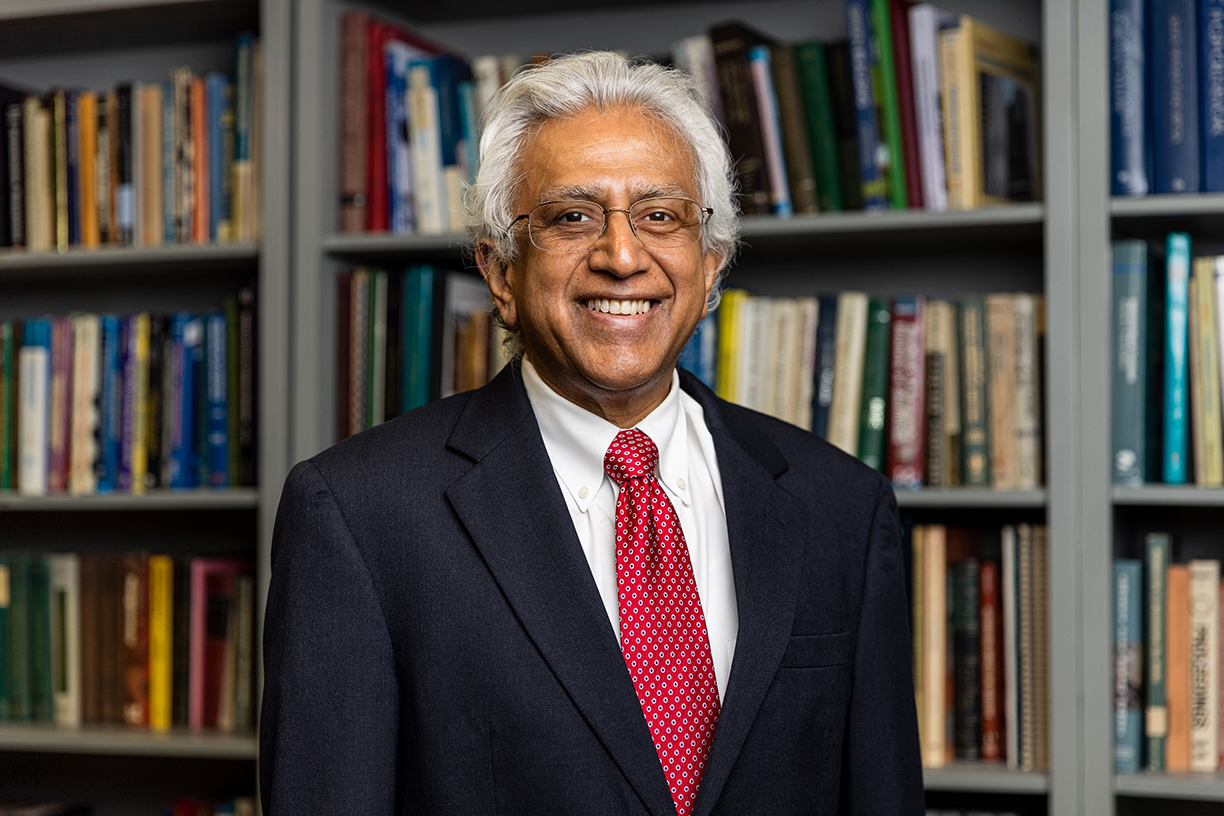2023 Excellence in Research Prize and Medal Recipient - Jay Meegoda

Jay Meegoda, a distinguished professor of civil and environmental engineering, is a prolific researcher and developer of diverse technologies to manage waste and sustainably remediate contaminated soil and water. He also devises inventive methods to reuse waste from households and businesses.
His vision for healthy communities, free from toxic chemicals, spans the globe. He and his teams have brought environmental technologies to five continents, from New Jersey, to Ecuador, to Egypt. These locations include remote, resource-poor regions where his students have built elemental systems to filter water and dispose of waste using only the materials at hand.
Backed by the United Nations, Meegoda and a collaborator from the University of Melbourne traveled to a conference in his native Sri Lanka in 2015, for example, to promote sanitary landfills to stem pollution and greenhouse gas emissions. Presented to government, policy and technical officials from several countries in Asia, their simple, cost-effective alternative to open dumping employs caps composed of soil and native plants.
Meegoda is currently designing and building a portable sonoreactor for the U.S. Air Force that will degrade the industrial compounds per- and polyfluoroalkyl substances (PFAS) into harmless byproducts using ultrasound. In a prototype tank with PFAS-polluted water, the high frequency and high power sound waves create nanobubbles that briefly reach temperatures of 5,000 degrees as they implode, breaking the PFAS molecules into atoms within 10 nanoseconds.
World military operations are the biggest polluters of PFAS, Meegoda notes. His 100-liter reactor tank would be trucked to contaminated sites on bases, where polluted surface and groundwater would be filtered and treated. Critically, the process itself involves no additional toxic materials. Following months of experiments in the lab, he plans to test the system next March at an Air Force facility in Texas or Pennsylvania.
He first used nanobubbles in remediation just miles from the NJIT campus on the notoriously polluted Passaic River, where, as a member of a citizen advisory group, he investigated the applications of ultrasound coupled with ozone to decontaminate river sediments.
Funded by the New Jersey Department of Environmental Protection, he is currently developing a policy document on the best way to manage the coming onslaught of EV battery waste, which poses both a pollution and a fire hazard, while risking the loss of valuable and recoverable metals, such as lithium, nickel, cobalt and copper. He is also designing and fabricating recycled glass composite construction materials and products.
Meegoda, who joined NJIT in 1985, has had a profound impact on campus and the environment through his students. In 2007, at the urging of a doctor who treated people in Haiti and cited environmental degradation as a key source of health problems, he founded the NJIT chapter of Engineers Without Borders (EWB), instilling his students with the fervor to solve problems in impoverished communities and giving them the chance to connect directly with the people they help by building their systems on-site.
The group began working in 2008 in Milot, a village in northern Haiti, where they built simple bio-sand filtration systems to clean water. Over the years, successive teams refined their model, making it lighter and portable. In Maca Grande, Ecuador, his students recently designed and built a spring cap to clean and increase the supply of water from a natural spring. Their successors are designing a gravity-powered system to pipe the water to individual houses.
Meegoda encourages his students to seek out other problems to solve. Thus, another team devised a cell-phone charging station in Milot using a simple technology: a modified bicycle with a back wheel that turns a generator, producing 20 watts of electricity. For many EWB alumni, these experiences launched careers.